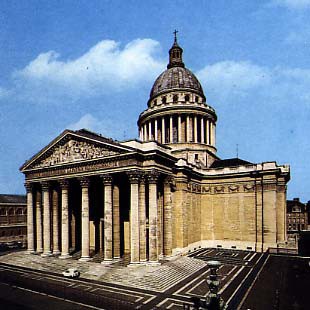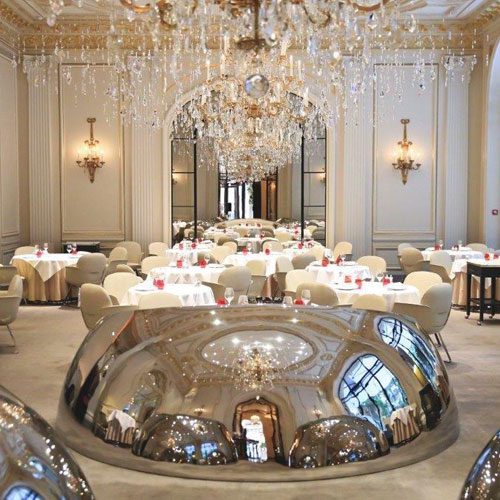The Panthéon, located in Paris’s Latin Quarter, is a monumental edifice that serves as a mausoleum for distinguished French figures. Commissioned by King Louis XV in 1744, it was originally intended as a church dedicated to Saint Geneviève, the patron saint of Paris. The architect Jacques-Germain Soufflot designed the structure, blending Gothic and classical architectural elements.
Historical Evolution:
- Construction: Initiated in 1757, the building was completed in 1790. However, the French Revolution led to its secularization in 1791, transforming it into a mausoleum to honor notable French citizens. Encyclopedia Britannica
- Secularization: During the Revolution, the Panthéon was repurposed to house the remains of illustrious individuals, reflecting the nation’s shift towards secularism. Encyclopedia Britannica
Architectural Highlights:
- Neoclassical Design: The Panthéon exemplifies Neoclassical architecture, characterized by its grand portico with Corinthian columns and a massive dome inspired by the Roman Pantheon. Encyclopedia Britannica
- Interior Artworks: The interior features murals depicting scenes from French history and the life of Saint Geneviève, alongside sculptures commemorating various historical events. Encyclopedia Britannica
Notable Interments:
The crypt houses the remains of eminent personalities, including:
- Voltaire: Philosopher and writer known for his advocacy of civil liberties. Encyclopedia Britannica
- Jean-Jacques Rousseau: Philosopher whose works influenced the Enlightenment. Encyclopedia Britannica
- Victor Hugo: Renowned author of “Les Misérables” and “The Hunchback of Notre-Dame.” Encyclopedia Britannica
- Marie Curie: Pioneering physicist and chemist, and the first woman interred in the Panthéon on her own merits. Encyclopedia Britannica
Visiting Information:
- Location: Place du Panthéon, 75005 Paris, France. Panthéon Paris
- Hours: Open daily from 10:00 AM to 6:30 PM. Closed on January 1st, May 1st, and December 25th. Panthéon Paris
- Admission: General admission is €11.50. Reduced rates are available for eligible visitors. Panthéon Paris
- Accessibility: The Panthéon is accessible to visitors with reduced mobility, with elevators and ramps facilitating movement throughout the monument. Panthéon Paris
Recent Developments:
- Commemorations: In April 2024, President Emmanuel Macron emphasized the Panthéon’s role in uniting the nation by honoring historical figures, including the induction of Jean Moulin and foreign resistance fighters. Le Monde
- Cultural Events: The Panthéon continues to host exhibitions and events that celebrate French heritage and the contributions of its notable citizens. Panthéon Paris
For more detailed information and to plan your visit, please refer to the official Panthéon website.


